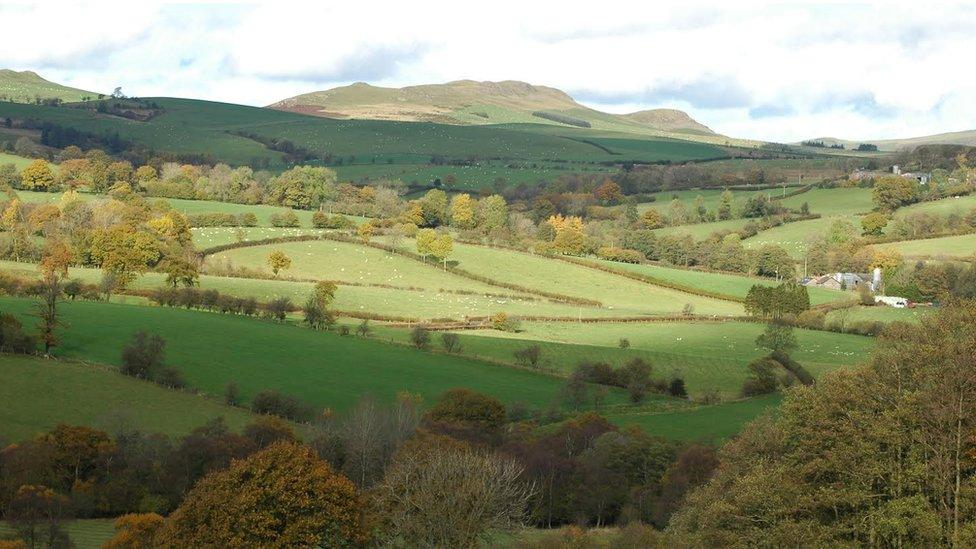Llandegley wind turbines to be built near ancient monuments
- Published

Conservationists said the planned turbines would destroy the view from Llandegley Rocks
After a long-running dispute over their impact on four ancient monuments, seven giant wind turbines are to be built.
The development at Llandegley was rejected by Powys council in 2017, with an appeal by Hendy Wind Farms rejected following a public inquiry.
However, energy secretary Lesley Griffiths decided to grant permission in November because of "exceptional circumstances".
On Monday, an appeal against her decision was dismissed.
A storm of local protest followed the initial plans, with the 110m (361ft) high structures earmarked for a site close to the A44 trunk road.
After the council refused permission, a public inquiry took place last year when Hendy Wind Farms appealed.
Planning inspector Hywel Wyn Jones recommended this should be dismissed.
In a report, he said the wind farm would be capable of providing renewable energy to more than 12,000 homes and reducing carbon dioxide levels in the air by almost 27,000 tonnes a year.
'Exceptional circumstances'
However, he said benefits were outweighed by harm to the local landscape - citing the iconic Llandegley Rocks and views of important prehistoric and medieval remains.
But in November, energy, planning and rural affairs secretary Ms Griffiths decided to give the turbines the go-ahead.
Although she accepted the wind farm would have "a significant impact" on the monuments, she disagreed with the inspector's conclusions.
Focusing on the pressing need for on-shore renewable energy sources, she said there were "exceptional circumstances" justifying the development.
The Campaign for Rural England mounted a judicial review challenge to Ms Griffiths' decision but had its case dismissed by a senior judge.
Sir Wyn Williams rejected arguments that she misunderstood what is meant by "exceptional circumstances" or that her decision was irrational.
The reasons Ms Griffiths' gave for approving the project were "adequate and sufficient", the judge concluded.
- Published27 April 2017
- Published26 November 2018
- Published26 October 2018